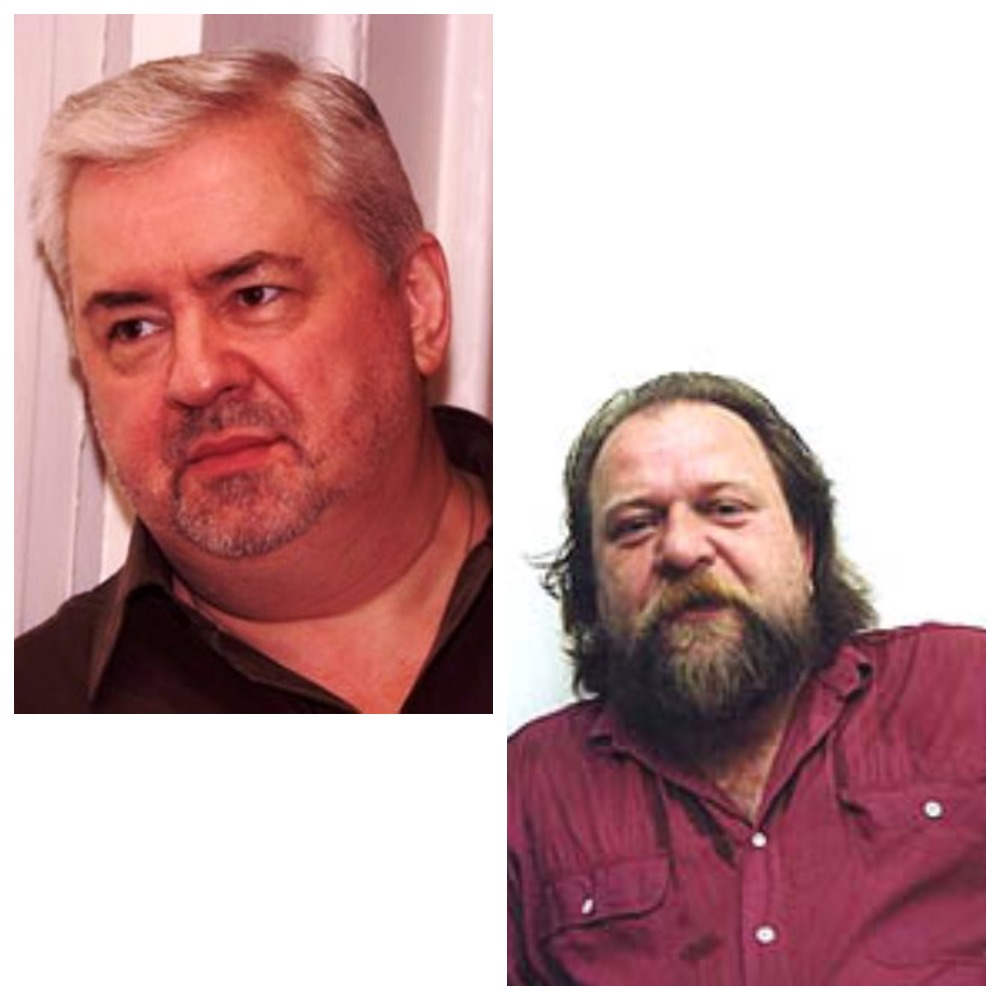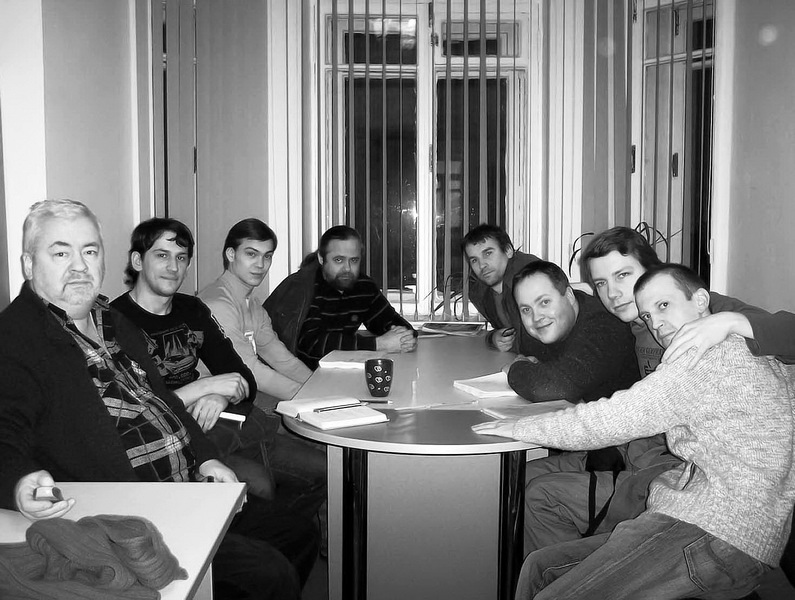For the audience, the theater begins with a hanger, as the great theater genius Stanislavsky said. And no one argues with that. This is a temple of art, not a passage yard. But there was a man who dared to create a "passage theater yard". Director, playwright, actor, founder of the Center for Drama and Director Alexei Kazantsev is a representative of the “new wave” of Soviet drama. His creative heyday and formation fell on the "long seventies" and the perestroika mess.
There were many professions
Alexey Kazantsev, whose biography is tightly connected with Melpomene, was born in Moscow in the victorious but hungry 1945. Showing a craving for literature, he entered the philological department of Moscow State University. A year later he went to the Drama Studio of the Central House of Arts, which he successfully graduated in 1967, and served as an actor in the Central House of Artists. Then he gained experience in directorial work, directed the comedy Death of Tarelkin and the drama Crime and Punishment.
He studied directorial skills in Leningrad (Tovstonogov’s course), then at the Moscow Art Theater School (1975, Efremov’s course). As a director, he worked at the Riga Drama Theater. Moscow City Council and others. An interesting talented director, innovator, jumping out of the red flags of ideological censorship. He is cramped within the narrow framework of political enlightenment, although he was neither a dissident, nor anarchist, nor modernist.
Alexei Nikolaevich reflected his attitude to reality in his work. The path of authorship became a matter of life, the writer gained fame in the world theater beau monde. For 32 years he wrote 10 plays. This is in addition to directorial work, the publication of the Dramaturg magazine, the creation of theatrical stages for young writers and directors, and touring activities.
Starting "passage yard"
In 1998, Alexei Kazantsev and Mikhail Roshchin opened another theater in Moscow - independent of state and censorship, the only one where young directors could show their strengths and talents. The writer saw and understood: everything is collapsing, from industry to space. There are no young playwrights. And if they appear, they don’t even want to listen to them in reputable theaters.
Knowing the laws of the scene, Alexei Nikolaevich was able to discover new names, felt the talent and helped him. His free theater space, the “entrance yard”, revealed the names of Kirill Serebrennikov, Olga Subbotina, Mikhail Ugarov and others. Yes, in order to see the gold, one had to wash a lot of the breed, but the game was worth the candle - the beginning playwright or director got a chance if the editorial boards of the Central House of Arts liked plans and ideas.
He was not afraid to experiment, he could distinguish husk from real art. So, for example, what happened with the play "Plasticine": they invited him for several months with free invitation tickets. Not immediately the audience appreciated - several devastating articles in the press, two failed seasons. Now there is no way to get tickets for Serebrennikov, the production receives prizes and tours abroad.
Plays live their life
As a director, Alexey Kazantsev created only five performances, one of them according to his own script in Riga. An attempt to put his “That Light” (1992) into the BDT failed. More Kazantsev-author never allowed Kazantsev-director to stage his dramas.
St. Petersburg friend and associate Vadim Tumanov recalled his first meeting with the author. He was going to put in "Theater of Satire" on Vasilyevsky "That This Light." Incredulous, cautious, in Alexei’s hare hat, he looked like an angry teddy bear, looked around and did not believe in a venture. But when Tumanov managed to release the play (1995), he and Alexei became friends. Two years later, the play appears in the repertoire of the theater. Stanislavsky (1997). In the same year, graduates of the theater school “That This Light” was shown in Kazan as a thesis.

All the works of the theatrical writer were about the problems of morality, love, meanness, estrangement and mercy. "Anton and others" (1975) was put in the central heating center only in 1981. “In the spring I will come back to you ...”, the story of the Tabakov Theater began with this performance by Fokin and students of GITIS. "And the silver cord will break ..." - debut in 1982 at the theater named after Mayakovsky, the play was immediately banned for productions. The fate of other works was not easy either.
Best story
Creative people often say that the best role has not yet been played, the picture has not been written, everything is ahead. Alexei Kazantsev happened that the main play was written under serial number 2. The history of the "Old House" is in more than 70 theaters in the world. You can watch it in different cities and countries, the "Old House" is the best monument of the Soviet era.
In the scenery of a communal apartment, located in a mansion where Leo Tolstoy once visited, local Romeo and Juliet appear. Loving high school students in their closets are stretched by parents and circumstances. The first love through the efforts of adults was miserable. Each participant in the story bears a tragedy in his soul. Aplomb and envy, love and betrayal - nothing new, but the action catches the living again and again.
He rejoiced at other people's successes
For the creation of the Central House of Arts, the artistic director was awarded prizes of the city of Moscow, Stanislavsky, and "The Seagull." For nine years he led the team. September 5, 2007, preparing for a tour to Bulgaria, at the 62nd year of his life, he suddenly died in Burgas. The dream of life, "Peer Gynt" by Ibsen, which he began to rehearse, was realized by his wife after the death of her husband, Natalia Somovay. This is a famous artist, an associate in all Kazantsev’s affairs. A photo of Alexei Kazantsev was preserved during a rehearsal of the action. He rarely posed. Photos of an eventful life of a person are offensively few.

But his business lives on, the Center is working. In 2017, a new artistic director Vladimir Pankov launched his “Old House” on the author’s native scene. For all the time he worked in the Central House of Arts, Alexei Kazantsev did not stage any of his plays. He thought about others, helped beginners, nurtured the young and rejoiced in their successes, which very rarely happens among creative people.
Friends, recalling him, slow, slow, talked about a tender vulnerable soul, damn hard work and incredible intuition for real talent. He dealt with the future, but never tear the thread with the past. He was wounded by the collapse of a great country, he thought and wrote about the path of man in this world, the problems of morality.